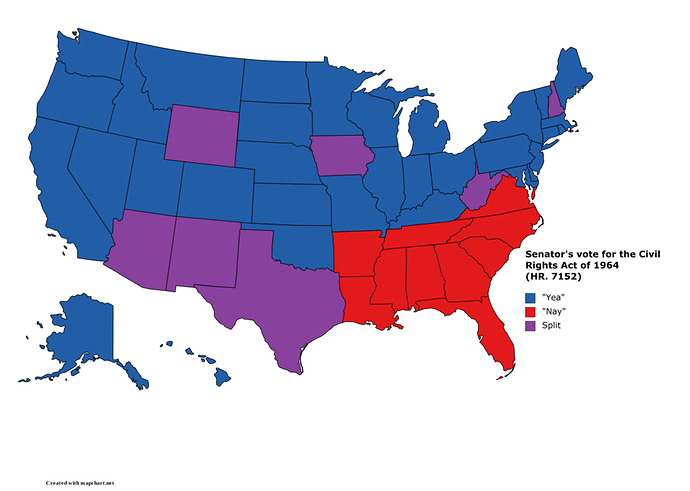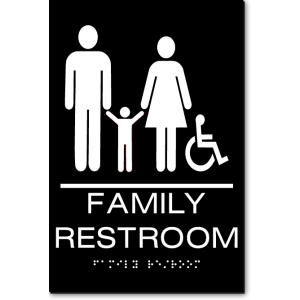Collectivism vs Liberty. In the simplest form, it’s about this simple.
- Left - Individuals are granted rights by the state
- Right - State is granted it’s power by individual citizenry
I personally think this is a very low resolution take, and falls apart almost immediately after taking a closer look.
If we want to imagine a simple polarity between “liberty” and “collectivism”, we can clearly see that there are versions of this on both the right and the left. As Haidt says above, “the devoted conservatives score highest on beliefs related to authoritarianism”. In other words, there are both auth-right tribes, and lib-right tribes. Just as there are auth-left tribes, and lib-left tribes. Which gives rise to the infamous “political compass” memes that we see so often on the web.
But even that simple political compass doesn’t really hold up, because really we would need to establish a different compass for every stage of development, and stack all of those on top of each other. Which means that terms like “liberty” and “collectivism” look different from stage to stage. For example, auth-left can look like Stalin at the Amber stage, can look neoliberal or technocratic at the orange stage, and can look like environmentalism at the green level. (Which is why I think “individual and collective”, or maybe even “agency and communion”, are much better stage-neutral terms to use for this sort of compass, rather than “liberty vs. authoritarianism”.)
I can certainly notice how my compass changes from stage to stage. If I am playing poker with a group of red people, I am a dictator. If I am playing poker with a group of turquoise people, I am an anarchist.
And then there’s the question of scale — what level of governing are we talking about? Many conservatives, for example, are “lib-right” when it comes to the federal level, but “auth-right” when it comes to the state level. Which basically means they want states to have the freedom to be as authoritarian as they want to be. And many progressives are “lib-left” when it comes to the state level, but “auth-left” on the national level — meaning they want states to have the freedom to experiment within the “laboratory of democracy”, but want the federal government to craft policy that addresses issues that are beyond any individual state’s ability to solve (climate change, unsustainable wealth inequality, etc.)
And this can look different from quadrant to quadrant. For example, I often say that I want more healthy conservative guardrails when it comes to culture in the LL quadrant, and far more progressive policies when it comes to political and economic systems in the LR.
And of course, all of these are simply tendencies. Western society clearly exists within an ongoing creative tension between these kinds of polarities. I think it’s probably fairly obvious from an integral point of view that having an absolutistic preference for one pole over the other only brings our civilization further out of balance, whether it’s hyper-individualism vs. hyper-collectivism, hyper-interiorism vs. hyper-exteriorism, hyper-differentiation vs. hyper-integration, etc.
Again, we can look at civil rights, which did not exist until progressives reconfigured the state to expand and defend our extant notion of “rights” and “liberty”. Which then had to be implemented and enforced from a federal, “authoritarian”, top-down direction. (And it was decades of this top-down enforcement that allows us to say things today like “it’s a settled issue”, because as I’ve said, if “parents rights” were a thing in the 1950s and 60s, we never would have desegregated our schools across the country.)
So was civil rights “liberty” based, or “collectivism” based? Kinda both, really — it was a bottom-up expansion of liberty, which needs to be enforced from the top-down by the collective.
What about, say, environmentalism? Is that liberty-based, or collectivism-based? Once again, kinda both. I should have the liberty to enjoy clean air and water, healthy biodiversity, and a stable climate. But that liberty requires collective action, cooperation, and enforcement.
I think it can be helpful to think of the critical polarities in our politics, and how those polarities shift from one stage to the next, and at different scales of cooperative self-organization. But that’s all the more reason why I think it’s kind of silly for any integral-informed person to choose any single pole, and especially to wrap an entire political identity around it.
Echoing Haidt above, history has a direction — and that direction is toward increasing cooperation. I’d also add that it is simultaneously toward increasing agency. The hope is, we can incrementally shift our society toward more sustainable, more integral systems that can leverage both. Which is the entire premise behind something like the “social contract”, of course — that every right of the individual is accompanied by a critical responsibility to the collective.
And I see this as one of our central problems — our contemporary notion of the “individual”, which first emerged within a shared perception of the world as a nearly infinite frontier with infinite resources to be extracted, really has not evolved a whole lot over the generations. How can we retain the dignities of individualism, while simultaneously recognizing that our planet is not an open system with infinite resources to be endlessly exploited, but a closed system with finite resources that requires cooperation at a massive scale in order to sustain? If we can figure that out — how to both empower the individual, while encouraging more sustainable self-organization on a massive scale, in order to bring the greatest depth to the greatest scale — we will have unlocked some critical wisdom for future generations.
And really, the “individual” is itself a bit of a mirage. As Ken likes to say, there is no individual anywhere in the kosmos that is not simultaneously part of a collective. And what appears to be an “individual” at one scale, is seen to be anything but at another scale. Even my own body — the very seat of my own sense of “being an individual”, is only 50% “me” from a genetic point of view. What I call my “individual self” is actually an entire cooperative eco-system of “me” and “not me”. Just another product of history’s relentless march toward greater cooperation at greater scales — a rich ecology of individual and collective action at every stage of evolutionary unfolding. The more we can base our political self-organization on the natural patterns of self-organization we see everywhere else, the better we will be, I think. And as far as I am concerned, integral does a better job of helping us recognize and identify those patterns than any other model.


 I’d suggest re-reading what I wrote, but instead of looking through a lens of “how can I dismiss all of this”, try looking through a lens of “what is he agreeing with me about, and where can I agree with him?”
I’d suggest re-reading what I wrote, but instead of looking through a lens of “how can I dismiss all of this”, try looking through a lens of “what is he agreeing with me about, and where can I agree with him?”

